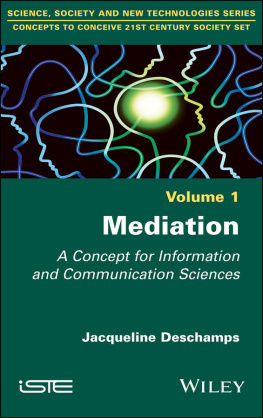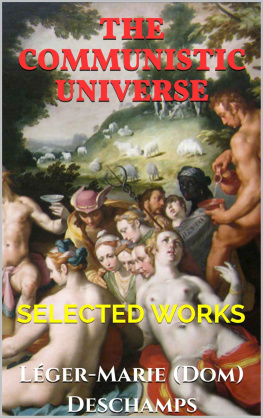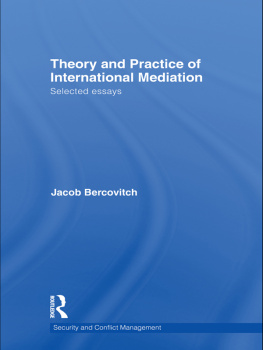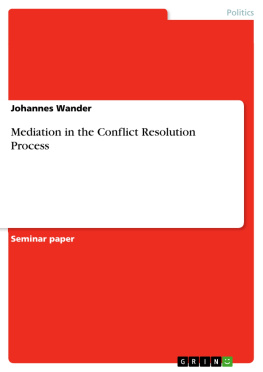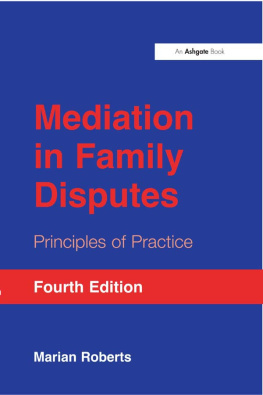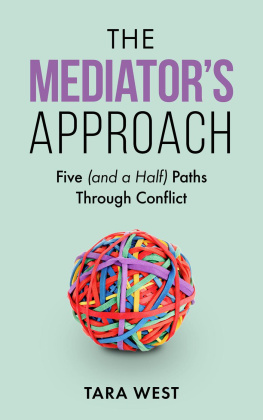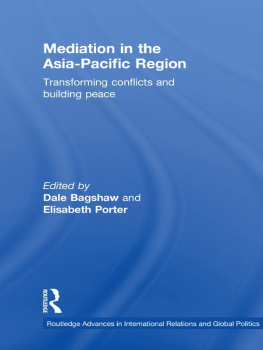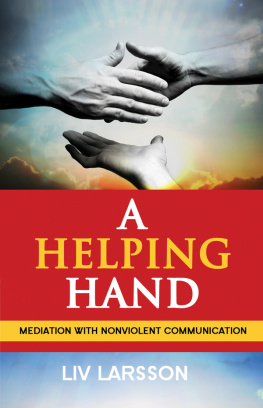
Concepts to Conceive 21st Century Society Set
coordinated by
Valrie Larroche and Olivier Dupont
Volume 1
Mediation
A Concept for Information and Communication Sciences
Jacqueline Deschamps

First published 2019 in Great Britain and the United States by ISTE Ltd and John Wiley & Sons, Inc.
Apart from any fair dealing for the purposes of research or private study, or criticism or review, as permitted under the Copyright, Designs and Patents Act 1988, this publication may only be reproduced, stored or transmitted, in any form or by any means, with the prior permission in writing of the publishers, or in the case of reprographic reproduction in accordance with the terms and licenses issued by the CLA. Enquiries concerning reproduction outside these terms should be sent to the publishers at the undermentioned address:
ISTE Ltd
27-37 St Georges Road
London SW19 4EU
UK
www.iste.co.uk
John Wiley & Sons, Inc.
111 River Street
Hoboken, NJ 07030
USA
www.wiley.com
ISTE Ltd 2019
The rights of Jacqueline Deschamps to be identified as the author of this work have been asserted by her in accordance with the Copyright, Designs and Patents Act 1988.
Library of Congress Control Number: 2018962335
British Library Cataloguing-in-Publication Data
A CIP record for this book is available from the British Library
ISBN 978-1-78630-386-8
Preface
The set Concepts to Conceive 21st Century Society is a state of the art study of the latest theoretical developments by researchers in Information and Communication Sciences (ICS). The authors of the set have put forward an interplay of concepts employed in the ICS community. These concepts are also used in other disciplines related to the humanities and social sciences (history, sociology, economics, linguistics, psychology, etc.) and, in addition, often fitting in line with the concerns of science and technology researchers (ergonomics, AI, data analysis, etc.).
In this set, we aim to highlight the theoretical approaches used in ICS, which is often regarded as a cross-disciplinary field from a deliberately conceptual point of view. We thought that this was the right choice to supplement the different epistemological works that have already been carried out in the field.
To describe more in detail the perspective adopted in each of these works, we should point out that it represents the point of view of researchers in ICS with a didactic aim and an epistemological focus. We will start by considering ICS as an academic discipline that contributes to the creation and dissemination of knowledge related to information and communication.
Thus, our theoretical reflection will be based on the analysis of a series of concepts widely used by the ICS community, and we will aim to make it accessible to humanities and social sciences students, as well as useful for teachers and researchers in several fields, and for professionals who wish to consider their practices. This interplay of concepts allows us to conceive 21st-Century society in its social and technological aspects. It also helps shed light on human and technological relations and interactions.
So far, this set of books is expected to include a dozen works, each of which presents one of the following concepts, which are widely used in ICS: power, discourse, mediation, dispositive [dispositif], memory and transmission, belief, knowledge, exchange, public/private, representation, writing and aesthetics.
Each work in this set shares the same structure. A first part, called Epistemological Foundations, summarizes and allows us to compare the theories that over time have made it possible to review the concept in question.
A second part, called Mobilizing the Concept of Mediation in Information and Communication Sciences, presents recent problems in ICS which involve the concept, with the aim of establishing the topic researched or analyzing it. This organization of the content allows us to get rid of the restrictive meanings that concepts may take on in the public or professional sphere, or even in various disciplines.
The first four works examine, in turn, the concepts of power, discourse, mediation and the dispositive. Therefore, we can find in these first texts two concepts with a substantial historical dimension, i.e. power and discourse, and two other concepts that have emerged in recent history, i.e. mediation and the dispositive.
These works result from a collective reflection. Regular meetings among the different authors have made it possible to write the four texts collaboratively, even if each author takes responsibility for the work he or she has signed. The content of these works also constitutes the foundations of a course in ICS epistemology that has been offered in several types of education for the past 10 years or so. Thus, it has been tested before an audience of students of different levels.
Some authors have already been asked to write about the other concepts. The series coordinators will ensure that these authors follow the logic of the set and the structure of the first four works.
Acknowledgments
I would like to thank Valrie Larroche, Olivier Dupont and Jean-Paul Metzger, who have made it possible to write this work. Thank you for your trust and involvement, as well as the wealth of our exchanges. Even if I take full responsibility for this text, I regard you as co-authors.
I would also like to thank the proofreaders of my manuscript for their apposite remarks.
Jacqueline DESCHAMPS
November 2018
In French, the two fields Communication science and Information science belong to the same academic discipline, namely
Sciences de linformation et de la communication (SIC).
Introduction
To respect the logic of the series Concepts to Conceive 21st Century Society, this work is divided into two separate parts. The first is dedicated to the epistemological foundations of mediation. It clarifies the concept of mediation, independently of the disciplines in which the concept is used, by comparing the theories that over time have made it possible to establish and then reassess it. The second part is based on the present-day issues in Information and Communication Sciences (ICS) that involve the concept of mediation, with the aim of establishing the topics to be researched and analyzing them.
As a concept employed in different fields, mediation is a very old practice that is re-emerging today to meet the needs of the modern world, and whose conceptualization, which is overall recent, is taking root. Mediation is a practice that involves two parties, who are sometimes very different, and a third party who helps them come to an agreement. The relation between them may be conflictual or not, and the third partys power depends only on the authority granted by these two parties.
In the first part of this work, following the analysis of the concept of mediation per se, its origins, mediation in its professional dimensions and the relations of mediation and peace, the presentation of the epistemological foundations of mediation is organized into three chapters:
- we approach the specific criteria that make mediation coherent, independently of the sectors in which it will be implemented. Several elements come into play, among which is a third party involved in a mediating relationship between subjects;
Next page
